International
Cuba describes the OAS resolution on the elections in Venezuela as an “inference”
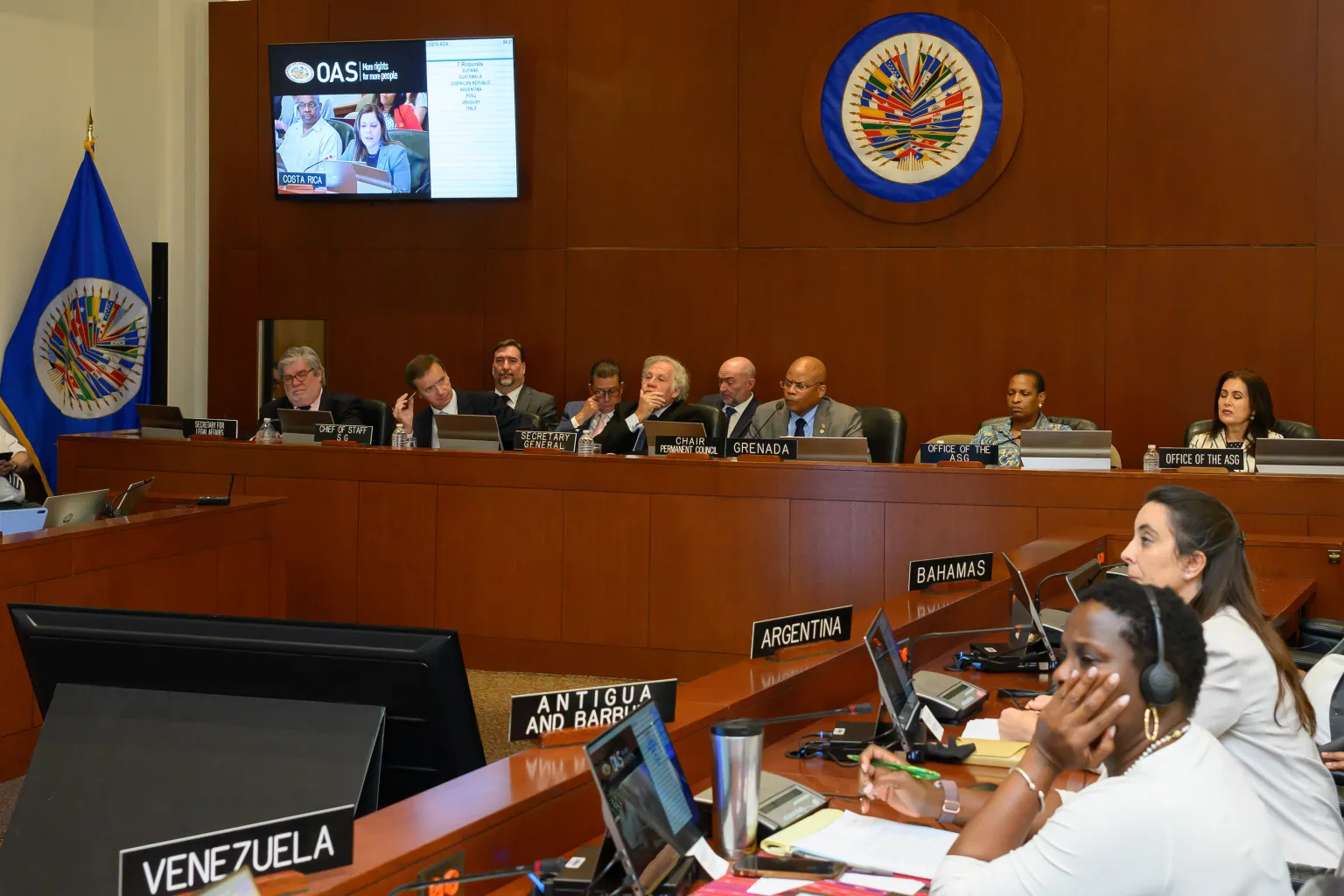
Cuba described as an “inference” the resolution approved by the Permanent Council of the Organization of American States (OAS) that requires the authorities of Venezuela to publish “expitely” the electoral minutes of last July 28 in that country.
“As we warned, the inter-interference resolution on Venezuela was imposed in the OAS,” the Cuban Foreign Minister, Bruno Rodríguez, wrote in X.
He also stated that the OAS, “which supported coups d’état, dictatorships and did not condemn US invasions in the region, lacks the authority to urge our countries to submit to spurious mandates. Cease interference.”
The organization’s resolution urges the National Electoral Council (CNE) of Venezuela to “expitly publish the minutes with the results of the vote of the presidential elections at the level of each polling station.”
It also calls for “respect for the fundamental principle of popular sovereignty through an impartial verification of the results that guarantees the transparency, credibility and legitimacy of the electoral process.”
The non-binding text was presented on behalf of the United States and Antigua and Barbuda, Argentina, Canada, Chile, Ecuador, Guatemala, Paraguay, the Dominican Republic, Suriname and Uruguay as co-sponsors.
His appeal joins the one also made this Friday by the European Union and 22 countries, including Spain, in favor of the “immediate publication of all the original minutes” of the elections and the “impartial” and “independent” verification of the results of those elections, in which according to the CNE Nicolás Maduro prevailed on Edmundo González Urrutia.
On July 31, 17 governments voted in favor of another OAS resolution that asked the Venezuelan authorities to publish “immediately” the minutes of the elections, but this initiative finally did not prosper.
That first text had 17 votes in favor, none against, 11 abstentions – like those of Colombia and Brazil, and five absences, so it did not achieve the absolute majority necessary to get ahead.
The CNE of Venezuela proclaimed the victory of the president, Nicolás Maduro, for a third consecutive term, in results rejected by the opposition and questioned by several foreign governments and international watch groups.
The main opposition coalition – the Democratic Unitary Platform (PUD) – led by Edmundo González Urrutia, assures that it obtained a “monumental victory” with 7.3 million votes, according to the electoral records obtained by that majority bloc.
Cuba, Venezuela’s political ally, was one of the first countries to recognize Maduro’s triumph decreed by the CNE, despite protests against this result.
International
Ukraine declares nationwide energy emergency amid russian attacks and extreme cold
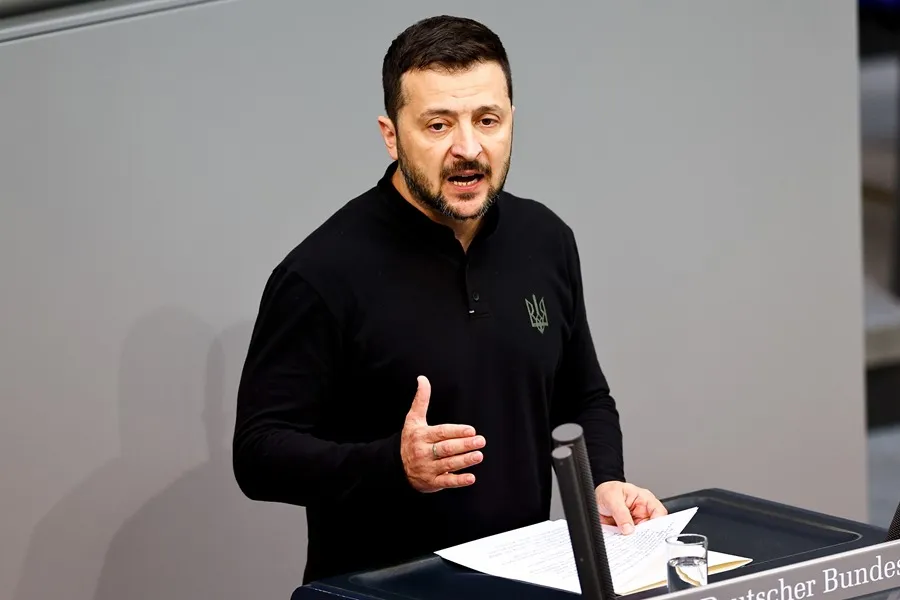
The Ukrainian government on Wednesday declared a nationwide energy state of emergency amid continued Russian military attacks and extreme winter weather, with nighttime temperatures dropping as low as minus 18 degrees Celsius.
“The consequences of Russian attacks and worsening weather conditions are severe (…) Overall, a state of emergency will be declared for Ukraine’s energy sector,” Ukrainian President Volodymyr Zelensky said in a statement posted on social media following a meeting with senior officials.
Zelensky announced the creation of a “permanent coordination headquarters” to manage the crisis in the capital, Kyiv, and tasked former defence minister and current energy chief Denys Shmyhal with overseeing support efforts for affected individuals and communities, including addressing power outages, heating shortages and other “practical issues.”
“There are many problems that require urgent solutions,” the president said, noting that repair crews, energy companies, municipal services and the State Emergency Service are working “around the clock” to restore electricity supplies. Kyiv has been particularly affected after Russian strikes last Friday disabled key parts of the power grid, as daytime temperatures hover around minus 12 degrees Celsius and plunge to minus 18 at night.
Zelensky added that public authorities will “maximize efforts with partners to obtain the necessary equipment and additional support,” while the government will ensure “maximum deregulation of all processes” to speed up the connection of backup power equipment to the grid. He also confirmed that work is underway to significantly increase electricity imports into Ukraine.
The Ukrainian leader further instructed his Cabinet to review curfew regulations in light of the extreme cold, arguing that citizens must have the greatest possible access to assistance centers, while businesses should be given flexibility to plan their operations according to the state of the energy system.
International
France joins Denmark’s ‘Operation Arctic Resistance’ in Greenland amid U.S. tensions

French President Emmanuel Macron confirmed in the early hours of Thursday (Wednesday afternoon in El Salvador) that France will take part in “Operation Arctic Resistance,” after Denmark announced it would expand its military presence in Greenland amid rising tensions with the United States over Washington’s stated ambitions regarding the semi-autonomous territory.
“At Denmark’s request, I have decided that France will participate in the joint exercises organized by Denmark in Greenland, ‘Operation Arctic Resistance,’” Macron said in a brief message posted on social media at 5:18 p.m.
The French president added that “the first French military elements are already on their way, with others to follow,” though he did not specify the number of troops being deployed or the scale of France’s planned contribution.
The governments of Sweden, Norway and Germany have also confirmed the deployment of military contingents to Greenland. Germany’s armed forces will send a 13-member reconnaissance team to the Greenlandic capital, Nuuk, to take part in a mission scheduled to run from Thursday through Saturday, according to the German Ministry of Defence.
Denmark’s announcement came shortly before a Danish delegation met at the White House with U.S. Vice President JD Vance and Secretary of State Marco Rubio to discuss Washington’s plans regarding Greenland. Copenhagen said the military activities would be carried out “in close cooperation with NATO allies.”
International
Iran closes airspace amid U.S. threats and deadly nationwide protests
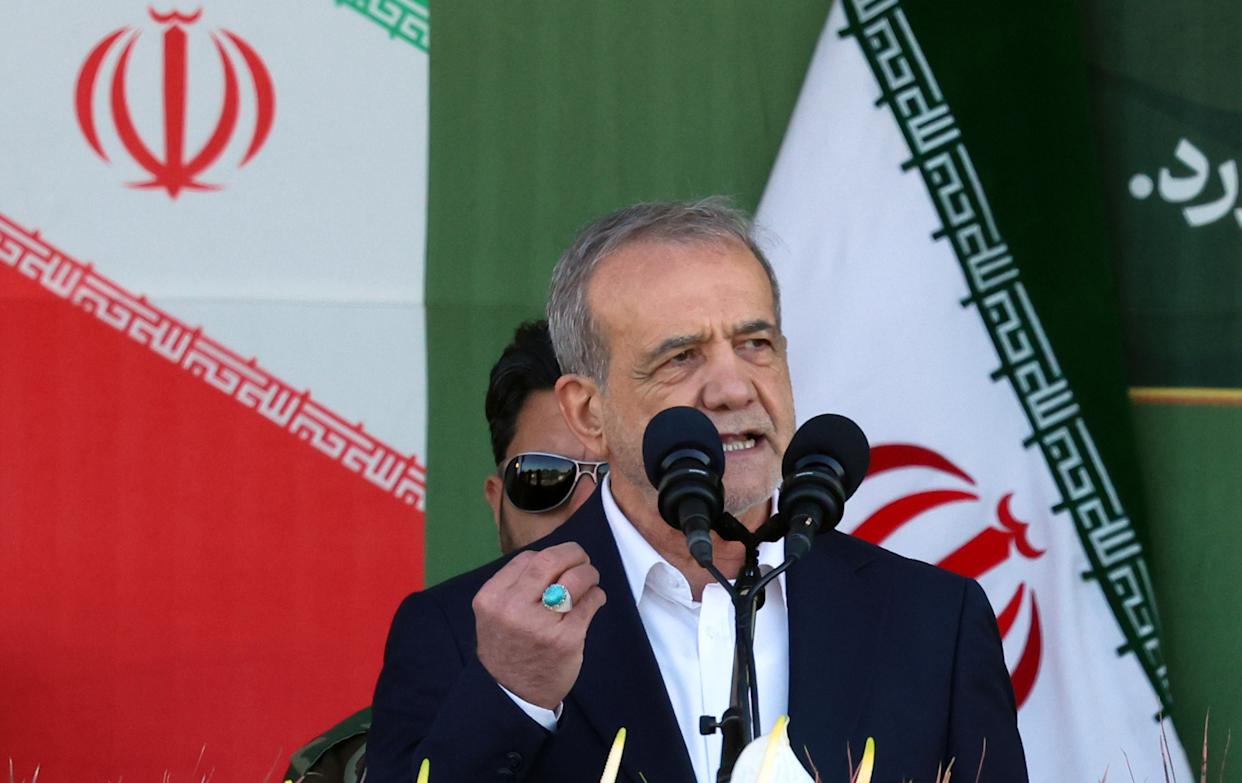
Iranian authorities closed the country’s airspace in the early hours of Thursday, according to data from flight-tracking website FlightRadar24, amid growing threats of a possible U.S. attack as protests across the country continue and have reportedly left thousands dead.
According to FlightRadar24, the Iranian government suspended all flights to and from the country, except for international flights that have received special authorization. The notice was initially issued for a duration of just over two hours.
The move comes after U.S. President Donald Trump in recent days threatened to strike Iran if its security forces failed to halt the deaths linked to weeks-long protests that began in Tehran and later spread to other Iranian cities. Despite the threats, the White House said diplomacy remains Trump’s preferred option.
Speaking from the Oval Office on Wednesday, Trump claimed that “the deaths in Iran have stopped” and said there would be no executions of protesters following his warnings to Tehran. He added that his administration would seek to verify those claims.
“I’ve been told the deaths in Iran are stopping. They’ve stopped, and that there are no plans for executions,” Trump told reporters, cautioning that the United States would be “very upset” if those assurances proved to be untrue.
The statements contrast with reports from rights groups. The Norway-based NGO Iran Human Rights (IHRNGO) said on Wednesday that more than 3,400 people have been killed since the protests erupted. Meanwhile, Kurdish-Iranian rights group Hengaw reported this week that a 26-year-old Iranian man, Erfan Soltani, was facing execution as of Wednesday.
-

 International2 days ago
International2 days agoDeadly van accident near Brazil border leaves 11 dead in Bolivia
-
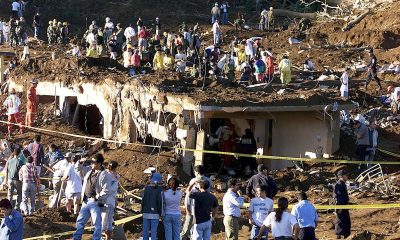
 Central America2 days ago
Central America2 days agoTaiwan’s $10 million donation after 2001 earthquakes allegedly diverted in El Salvador
-

 Central America2 days ago
Central America2 days agoU.S. and El Salvador maintain close partnership, embassy says
-
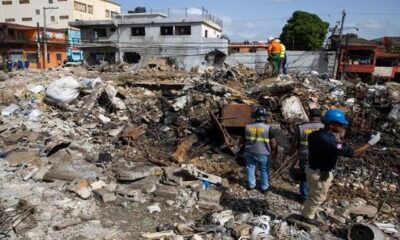
 International2 days ago
International2 days agoDominican court postpones hearing in deadly nightclub collapse case
-

 International2 days ago
International2 days agoU.S. to host Danish and Greenlandic Foreign Ministers at the White House
-

 International2 days ago
International2 days agoPolice hunt gunmen after fatal shooting in Corsica
-
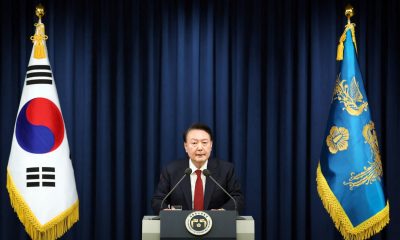
 International2 days ago
International2 days agoEx-President accused of bid to establish dictatorship as verdict nears in South Korea
-

 International2 days ago
International2 days agoVenezuelan opposition leader dedicates Nobel Prize to Trump
-

 International4 days ago
International4 days agoU.S. Issues Urgent Evacuation Call for Citizens in Venezuela
-
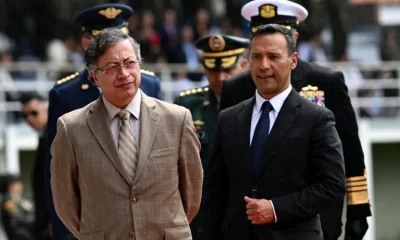
 International1 day ago
International1 day agoColombian Defense Chief Meets U.S. Officials to Advance Bilateral Narcotics Strategy
-

 Central America1 day ago
Central America1 day agoBukele warns crime can become a ‘parallel government’ during visit to Costa Rica
-

 International1 day ago
International1 day agoPeruvian Court Orders Definitive Dismissal of Money Laundering Case Against Keiko Fujimori
-

 International1 day ago
International1 day agoU.S. to suspend visa processing for applicants from 75 countries
-

 International12 hours ago
International12 hours agoIran closes airspace amid U.S. threats and deadly nationwide protests
-

 International12 hours ago
International12 hours agoU.S.–Denmark tensions escalate as Trump pushes NATO to back U.S. claim on Greenland
-

 International12 hours ago
International12 hours agoFrance joins Denmark’s ‘Operation Arctic Resistance’ in Greenland amid U.S. tensions
-

 International12 hours ago
International12 hours agoUkraine declares nationwide energy emergency amid russian attacks and extreme cold
-

 International12 hours ago
International12 hours agoUK Intelligence estimates russian casualties in Ukraine at over 1.2 million
-

 International12 hours ago
International12 hours agoSwiss Canton of Valais Grants Emergency Aid to Victims of Crans-Montana Bar Tragedy
-

 International12 hours ago
International12 hours agoHillary Clinton skips Epstein inquiry as house panel threatens contempt charges
-

 International12 hours ago
International12 hours agoX moves to block Grok from creating sexualized images of real people amid legal scrutiny


























